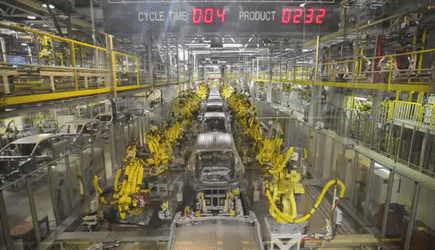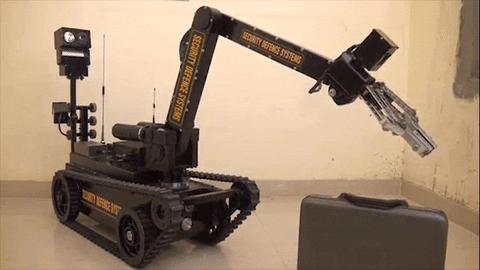One problem I am becoming more aware of as I think about what I am seeing is that the gap to bridge for workers between the non-technical jobs they have had, and the technical work they need to transition to if they are to continue working, seems much greater than in the past as new ways replaced old ways.
For some time, I wondered why I would see adults working at places such as McDonald's, that were the haven for part time workers in high school when I was growing up. Why are these adults working at McDonald's selling hamburgers for minimum wage and demanding that the minimum wage be raised so they can support a family on that job?
As I have observed a number of people really struggle to understand technology, and often fail because their minds simply are not "wired" that way, it started to become at least somewhat clearer. If you have ever worked with people, showing them how to use a computer, or tutored people in college in a technical degree path, you see some who seem to get it and others who struggle mightily, often to no avail. It isn't a question of being smart because there are many different kinds of "smart". People aren't all wired the same, yet the job market seems to demand that they be wired for the jobs that are available.
With the onslaught of technology into all areas of our lives, replacing the way things had been done in the past, we need workers skilled in technology, and there are plenty of these kinds of jobs begging for trained people. Though I am retired and only work a few months a year, a few days a week, there is more engineering work than I could ever hope to fill even if I went back to work full time. I am frequently contacted by recruiters from various parts of the country. It isn't because I am such a great engineer, but instead because any engineer available for work is already working. There are plenty of other technical jobs aside from engineering, all with similar stories. Yet, we continually hear about the problems many workers are having finding work outside the skilled technology arena.
The problem I see is that not everybody is cut out to do this kind of work, but since this kind of work is replacing other kinds of work, there is a decreasing market for such workers to fall back on. Couple that with the trend over many years now of suitable types of work going overseas. This is a real problem, and there are a lot of people who would work if suitable jobs were available, not that they are lazy. Just as not everybody is cut out to be a concert classical pianist or a cop or a mechanic or doctor, not everybody is cut out to be a technology worker, yet that is where the jobs are. I honestly don't know what the answer is at this point; I just see this perspective of the problem. I suspect that
@asp3 has a good line on it though.

Tony








